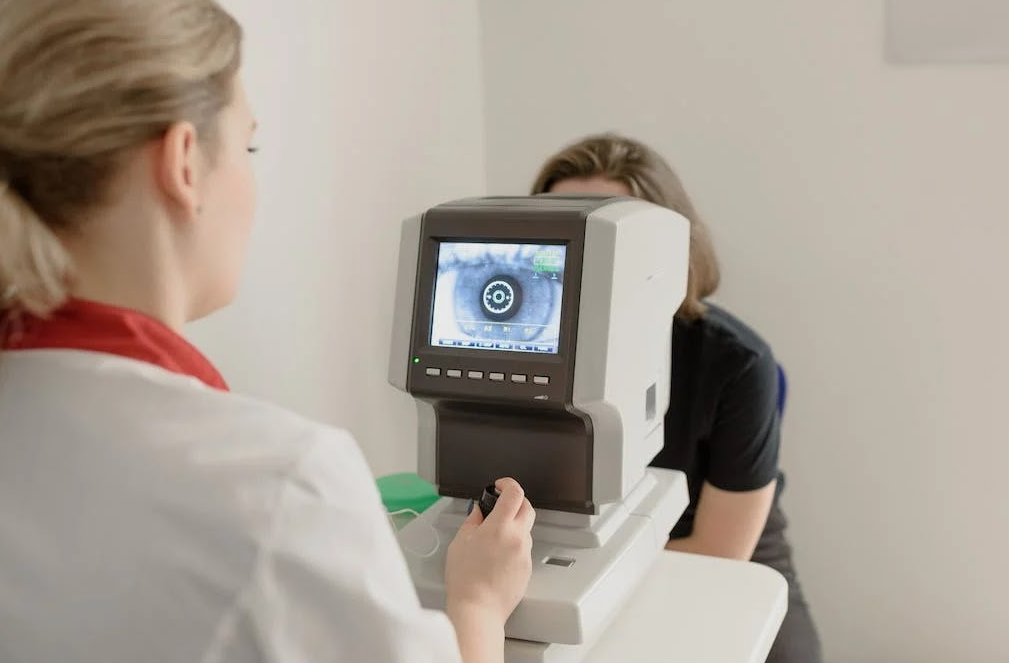8 Questions to Ask Your Ophthalmologist During Eye Exam

Do you have an upcoming eye exam? It's time to ask your ophthalmologist the right questions! You need to know how to maintain the health and happiness of your eyes.
1. What Tests Will Be Carried Out?
Knowing what your eye doctor will do if you are nervous before your next eye exam will help you relax. You'll also experience more comfort with this information.
Learn about any testing equipment they plan to use. Additionally, you ought to learn why particular tests are being performed.
Ask any questions you may have regarding the tests' possible health risks and adverse effects. For instance, if you are aware that a specific test will impair your vision, you can plan to have someone pick you up from your appointment and drive you home.
2. What Do My Results Mean?
Based on your eye problems or symptoms, the ophthalmologist will decide which tests to use to provide information about your eyesight. When the results are available, ask your eye doctor what they mean.
You can talk about any necessary next actions after you obtain your results. Do not hesitate to ask your ophthalmologist for additional clarification if something is unclear.
3. Are Additional Visits Required?
Without any eye conditions or vision issues, many people don't bother making routine follow-up appointments with their eye doctor. Taking proper care of your eyes, which you only have one pair of, should be your first concern.
Regular visits to your eye doctor are your main option for achieving that. Even if you think your eyes are perfectly healthy, preventative maintenance might find any problems before they get worse. You'll require more frequent eye exams as you age.
4. Should I Change My Lifestyle to Avoid Eye Problems?
Your ophthalmologist will instruct you on the precautions to take to maintain your eyes' safety and health.
For instance, you might learn that a proper diet might help maintain the health of your eyes and that limiting your screen time can help you avoid dry eyes. With this knowledge in hand, you can treat your eyes with more respect and be sure that your vision will stay with you for many more years.
5. Will My Condition Change?
Ask your ophthalmologist whether your condition is stable and whether it will worsen over time after receiving a diagnosis. Ask if there is anything you can do to stop the situation from getting worse.
The sooner you learn the state of your eye problem, the sooner you can keep organized. For instance, if you have a good vision, you may be interested in learning how to keep it that way.
You can make plans for yourself and any dependents you may have if your condition is severe.
6. What New Symptoms or Signs Should I Be Aware Of?
This is crucial if your family history puts you at risk for specific eye conditions. It’s especially important for diseases like glaucoma.
In addition, if you already have an eye issue, you should be on the lookout for any symptoms or indicators.
7. Is My Eye Condition Treatable?
Do you now or recently have an eye condition? Check with your eye doctor to see if it is treatable.
Never be afraid to ask for a thorough explanation of your problem. You will gain the most knowledge and awareness about how to treat your disease from doing this.
8. Is There Anything I Can Do to Protect My Eyes?
If you haven't previously, this inquiry might spark a conversation on eye safety and other topics like UV light, contact lens maintenance, protective eyewear, and more. For instance, your eye doctor can discuss the need for protection against ultraviolet rays.
UV exposure has been linked to a number of eye conditions, including macular degeneration, pterygia, and eye malignancies. However, studies have shown UV-blocking contacts are more effective than sunglasses for reducing side light.
Post a comment